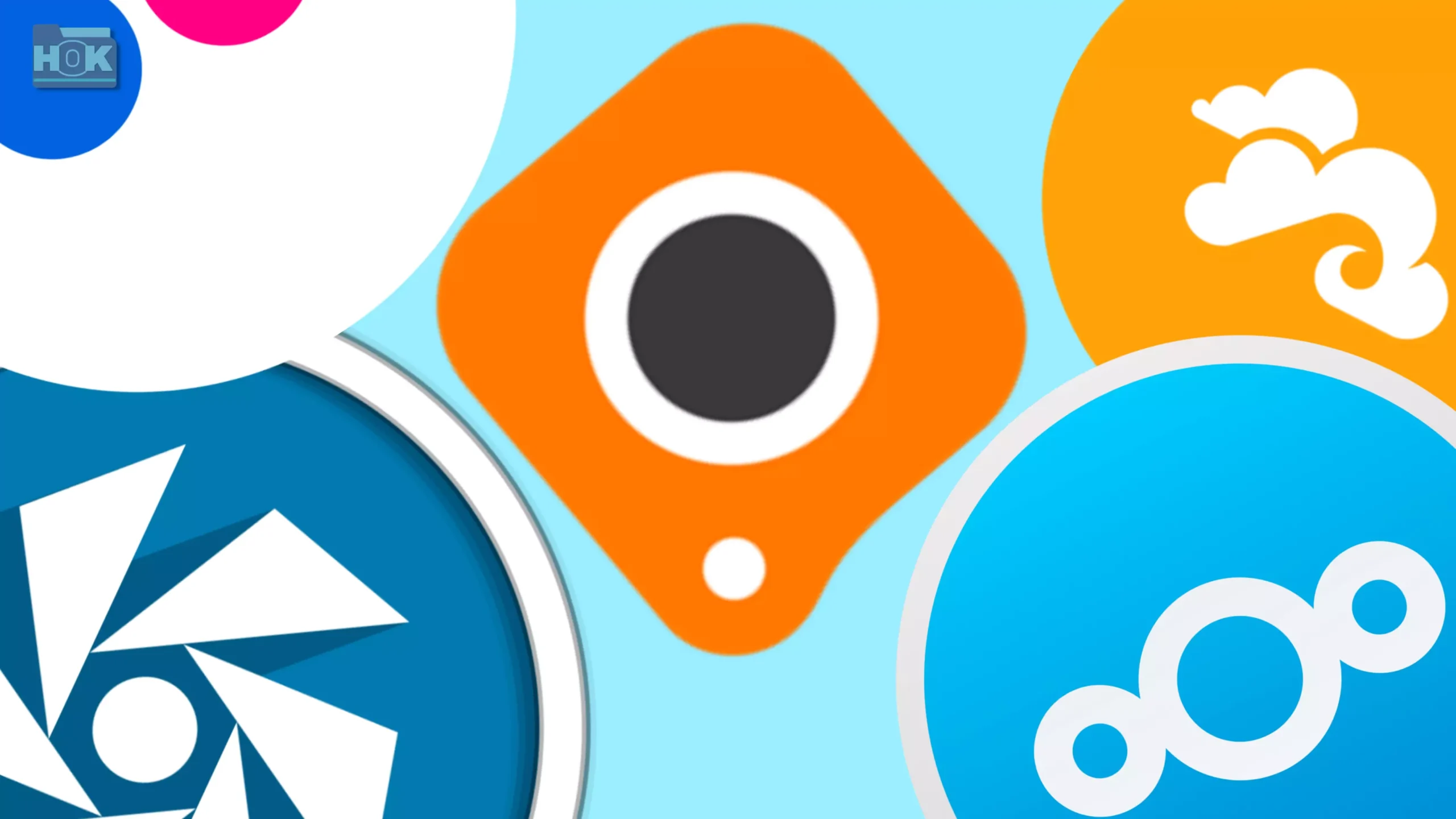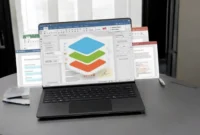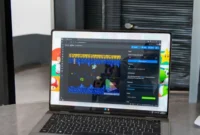How do you turn emails into tasks using Gmail’s to-do list feature? What are the benefits of turning emails into tasks using Gmail’s to-do list? This article will explore how to turn emails into effective tasks using Gmail’s to-do list. We’ll walk you through the simple steps and highlight the key benefits of this method.
Google Photos is a popular photo storage tool, but many open-source alternatives offer better privacy and control. If you already use an open-source photo editing tool, you can use an open-source storage manager. Some of these tools offer editing and storage options, which can save you a step in the process of managing your photos.

Comprehensive Open-Source Photo Solutions for Privacy and Customization
Google Photos is a widely used tool for storing and organizing photos, and many people prefer open source because it offers privacy, control, and customization. Open-source tools are beautiful to those who value data security and want to avoid collecting data for proprietary services. In addition, many open-source photo management tools integrate photo editing features, providing a comprehensive solution for organizing, editing, and backing up photos. Here are some open-source Google Photos photo storage and management tools:
Nextcloud
- Description: Nextcloud is a popular open-source cloud storage platform. It offers features like file syncing, sharing, and backup. The Nextcloud Photos app lets you store and organize your photos, and you can access them from any device with an internet connection.
Features:
- Personal cloud storage
- Full control over your data
- Can be hosted on your device or used with a third-party hosting provider
- Integrates with Nextcloud apps for collaboration, editing, and sharing
Piwigo
- Description: Piwigo is a powerful open-source photo management software for organizations and individuals who want to manage their photo collections. It can be hosted on your device and offers features like tags, albums, and automatic image resizing.
Features:
- Web-based solution
- Bundle management, metadata editing, powerful search
- Plugins for extended functionality (like Google Drive integration)
- Community-driven with frequent updates
Lychee
- Description: Lychee is an in-app photo management tool with a clean and intuitive interface. It lets you organize your photos with albums, tags, and easy navigation options.
Features:
- Simple and intuitive interface
- Organized albums and tags
- Can be hosted in-app or use a third-party hosting service
- Full control over your photos and privacy
PhotoPrism
- Description: PhotoPrism is an open-source, AI-powered photo management app that uses artificial intelligence to focus on the privacy and organization of your photos. It can scan your photo library and categorize photos based on content recognition.
Features:
- Smart search and tagging using AI
- Facial recognition (optional)
- In-app options for full control over your data
- Works well with large photo collections
- Supports raw images and video files
Krita
- Description: Krita can be used as a digital painting and editing tool, as well as an image management tool, in combination with other software. It is a great open source alternative for those who edit their photos and artwork.
Features:
- Premium photography and digital painting tools
- Can be integrated with other enterprise photo storage solutions
- Strong community, regularly updated
Shotwell
- Description: Shotwell is an open source photo manager for Linux users. It makes importing, organizing, and editing photos a simple task. It doesn’t have as many features as other options, but it is easy to use and lightweight.
Features:
- Import, organize, and tag images
- Basic editing tools (crop, rotate, adjust exposure)
- Works with multiple formats, including RAW images
Darktable
Description: Darktable is an open-source photo editing program for photographers who work with RAW files. It is a decentralized, yet fully featured photo management tool that can be used to organize and edit local photos, while also providing some image management features.
Features:
- Advanced image editing (RAW processing, color grading, exposure adjustment)
- Workflow management for photographers
- Integration with cloud backup solutions
MediaGoblin
Description: MediaGoblin is a decentralized, open-source platform for managing and organizing media files, including images. It supports many file types, making it a versatile tool for photographers and content creators.
Features:
- Decentralized and self-organizing
- Supports a wide range of media (images, audio, etc.).
- Advanced metadata response and user management
Seafile
Description: Seafile is a powerful, open source file syncing and collaboration platform. It lets you sync, store, and access your photos from multiple devices. It’s more file-centric, but still a great option for photo storage.
Features:
- A private cloud for file syncing and storage
- Collaboration tools, file sharing, and version control
- Supports syncing large photo libraries across devices
Flickr (Open Source Alternatives)
- Description: While Flickr itself isn’t open source, several open-source alternatives mimic its structure and features, allowing photographers to manage and share their photos. If privacy is important to you, you might want to consider alternatives like Piwigo or MediaGoblin for a Flickr-like experience.
Advantages of open-source photo management and storage tools:
- Privacy and control: Unlike Google Photos, where your data is stored on its servers, open-source options give you full control over your hosting and data.
- Customization: You can customize the tools to suit your needs or integrate them with other open-source applications.
- No vendor lock-in: You’re not tied to a specific cloud provider, and the data formats are often open, making it easy to migrate to another platform.
- Community support: These tools often have a strong community dedicated to troubleshooting, feedback, and development.
These open-source tools offer a wide range of options, from basic image storage and organization to advanced editing and management features. Whether you’re looking for a simple solution or something more comprehensive, there’s likely an open-source option that fits your needs.
You are a reporter based on closed-source Google Images
There’s no need to rely on closed-source services like Google Photos when open-source alternatives are available that offer privacy, control, and flexibility. By choosing open-source solutions, you can manage your photos in a way that ensures privacy, data ownership, and personalization.
Key benefits of open-source photo management:
- Privacy: Open-source tools often allow you to host your data yourself, meaning your photos are under your control without being hosted on corporate servers. This can significantly improve privacy compared to cloud-based services like Google Photos.
- Data ownership: You have full control over your photos and are not bound by terms of service that might change or compromise your data in the future.
- Customization: Many open-source tools can be customized to suit your needs. You can modify features, integrate with other services, and even contribute to the development of the tool.
- Ad-free and tracking-free: Unlike closed-source services that might show you ads or track your usage to monetize your data, open-source apps don’t have these methods.
How to move away from Google Photos
- Choose a tool: Choose one of the open-source photo management tools based on your needs (storage, editing, sharing, etc.).
- Self-host or use a provider: You can host these tools yourself (by setting up your server) or use a third-party hosting provider that supports these open-source solutions.
- Transfer your photos: Download your photos from Google Photos and upload them to your new tool. Most of these platforms offer easy ways to organize and tag your photos.
- Backup and sync: Back up your photos regularly and sync them with other devices when needed. Many open source solutions offer automatic syncing for peace of mind.
- Customize your settings: Customize your tools to suit your photo organization, privacy settings, and sharing options.
Choosing open-source tools will keep your data private and secure while giving you more control over your photos. Additionally, you will avoid the risk of being used for advertising or monetization, as is the case with closed-source services like Google Photos.
Conclusion
Many open-source alternatives offer more privacy, control, and customization without having to rely on closed-source services like Google Photos. Open-source tools like Nextcloud, Piwigo, PhotoPrism, and others let you manage, store, and even edit your photos without losing your data. These solutions offer a higher level of security, so you can host your data and avoid unnecessary monitoring and advertising. By switching to an open-source photo manager, you can take full control of your photos while benefiting from powerful features and community-supported improvements. Whether you’re a casual user or a professional, open-source alternatives offer flexibility and privacy that’s unmatched by closed-source services.


